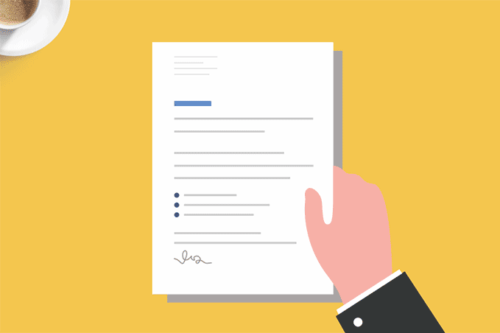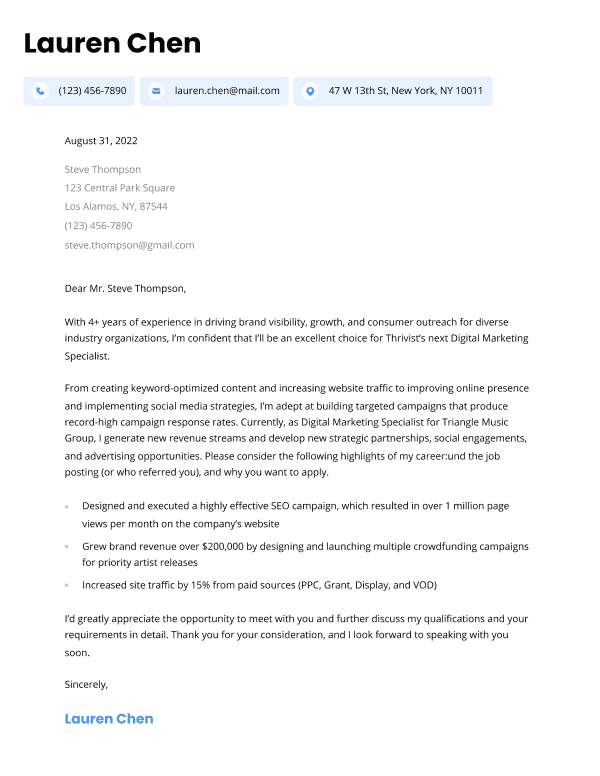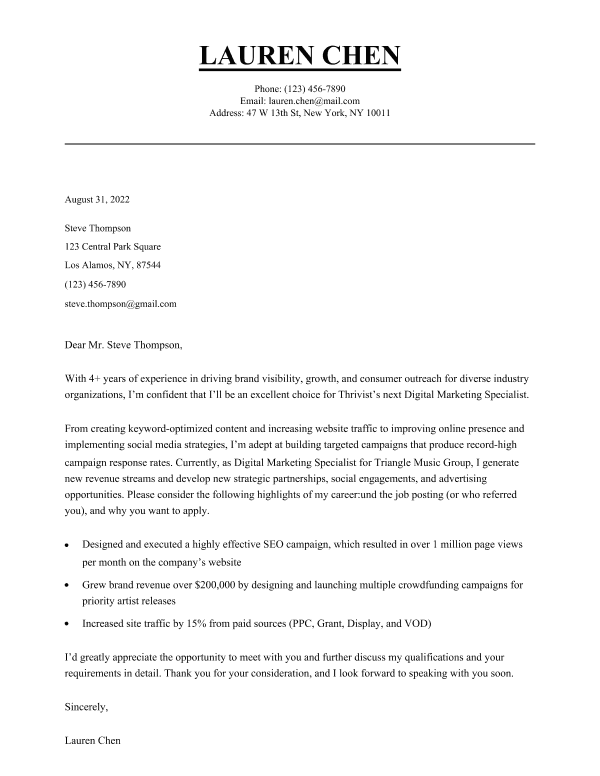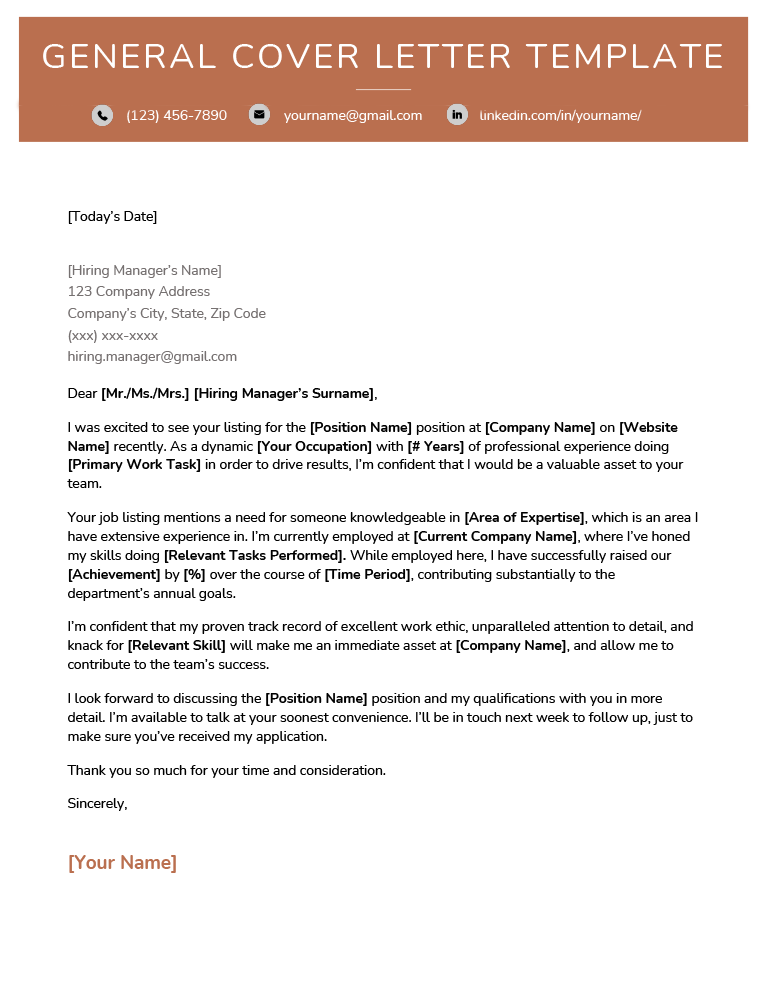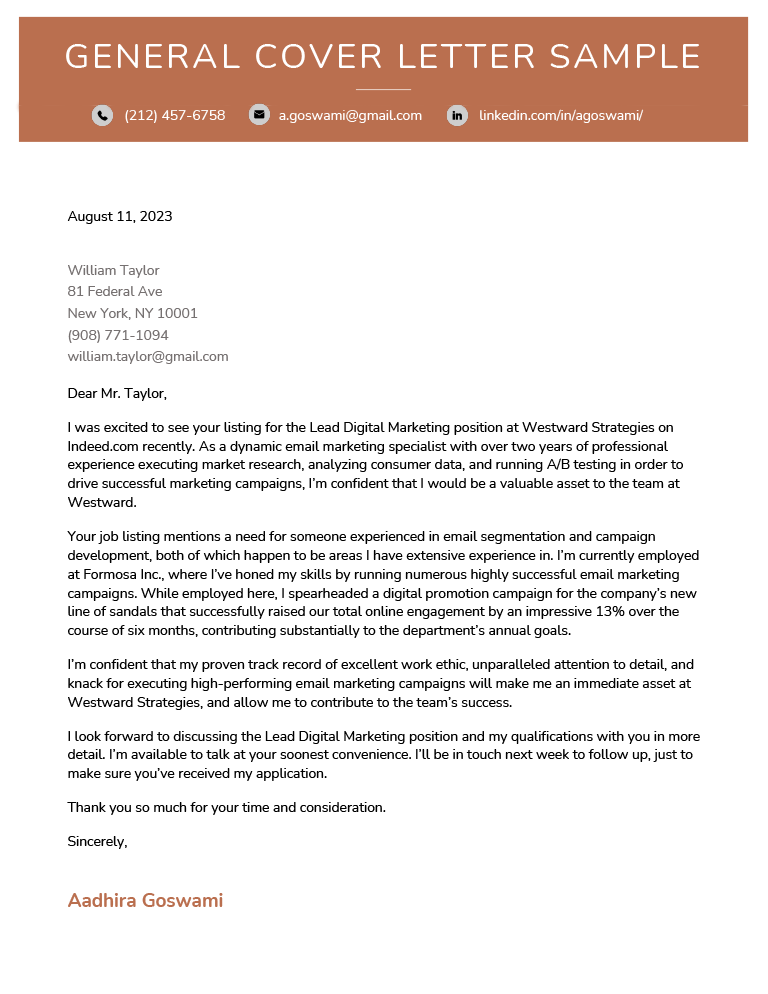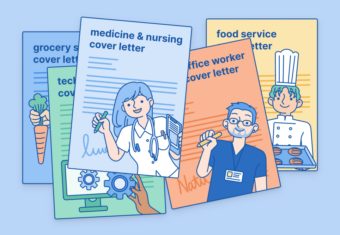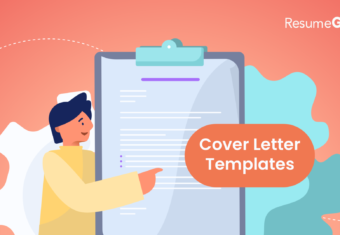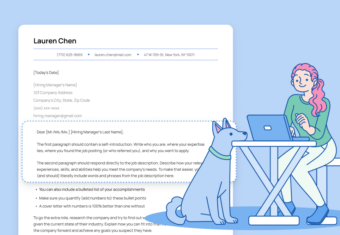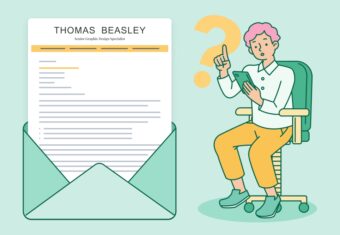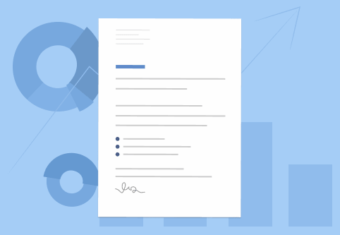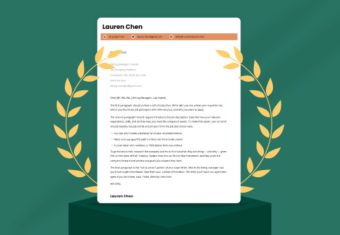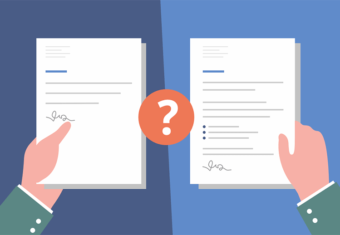We’re going to teach you how to craft the perfect general cover letter for all jobs, and provide you with a sample and template to help you save time and impress hiring managers.
Our free-to-use cover letter builder can make you a cover letter in as little as 5 minutes. Just pick the template you want, and our software will format everything for you.
Generic cover letter template
Here’s a professional generic cover letter template you can use to apply to any job:
General Cover Letter Template (Text Version)
[Today’s Date]
[Hiring Manager’s Name][Company Address][City, State ZIP][Phone Number][Email Address]
Dear [Mr./Ms./Mrs.] [Hiring Manager’s Surname],
I was excited to see your listing for the [Position Name] position at [Company Name] on [Website Name] recently. As a dynamic [Your Occupation] with [# Years] of professional experience doing [Primary Work Task] in order to drive results, I’m confident that I would be a valuable asset to your team.
Your job listing mentions a need for someone knowledgeable in [Area of Expertise], which is an area I have extensive experience in. I’m currently employed at [Current Company Name], where I’ve honed my skills doing [Relevant Tasks Performed]. While employed here, I have successfully raised our [Achievement] by [%] over the course of [Time Period], contributing substantially to the department’s annual goals.
I’m confident that my proven track record of excellent work ethic, unparalleled attention to detail, and knack for [Relevant Skill] will make me an immediate asset at [Company Name], and allow me to contribute to the team’s success.
I look forward to discussing the [Position Name] position and my qualifications with you in more detail. I’m available to talk at your soonest convenience. I’ll be in touch next week to follow up, just to make sure you’ve received my application.
Thank you so much for your time and consideration.
Sincerely,
[Your Name]
Completed general cover letter sample
Below is a completed general cover letter sample from a candidate applying for a digital marketing position:
General Cover Letter Sample (Text Version)
11/03/2021
William Taylor
81 Federal Ave.
New York, NY 10001
(908) 771-1094
William.Taylor@gmail.com
Dear Mr. Taylor,
I was excited to see your listing for the Lead Digital Marketing position at Westward Strategies on Indeed.com recently. As a dynamic email marketing specialist with over two years of professional experience executing market research, analyzing consumer data, and running A/B testing in order to drive successful marketing campaigns, I’m confident that I would be a valuable asset to the team at Westward.
Your job listing mentions a need for someone experienced in email segmentation and campaign development, both of which happen to be areas I have extensive experience in. I’m currently employed at Formosa Inc., where I’ve honed my skills by running numerous highly successful email marketing campaigns. While employed here, I spearheaded a digital promotion campaign for the company’s new line of sandals that successfully raised our total online engagement by an impressive 13% over the course of six months, contributing substantially to the department’s annual goals.
I’m confident that my proven track record of excellent work ethic, unparalleled attention to detail, and knack for executing high-performing email marketing campaigns will make me an immediate asset at Westward Strategies, and allow me to contribute to the team’s success.
I look forward to discussing the Lead Digital Marketing position and my qualifications with you in more detail. I’m available to talk at your soonest convenience. I’ll be in touch next week to follow up, just to make sure you’ve received my application.
Thank you so much for your time and consideration.
Sincerely,
Aadhira Goswami
How to write a general cover letter
Now that you’ve seen what a proper generic cover letter looks like, if you’re still unsure what to include in yours, don’t worry.
Below, we provide five writing tips that’ll show you how to write a professional general cover letter for no specific job that’ll be sure to catch the hiring manager’s attention.
Address your cover letter properly
You only get one chance to make a great first impression with the hiring manager, so it’s critical that you address your cover letter properly.
Although you’re using a general cover letter, a generic and impersonal greeting could damage your chances of getting a response.
Properly formatting the hiring manager’s contact details and using the correct salutation will show that you did your research and are excited about the job opportunity.
Here’s how to address your cover letter:
List the hiring manager’s contact information at the top – Include the company’s address as well as the hiring manager’s phone number and email.
Address the hiring manager by name – Even if you don’t have time to fully customize every cover letter you send out, at least make sure to address the hiring manager by name. If you don’t know it, do a LinkedIn search, check the company website, or try calling the reception to ask. Only start your cover letter with “To Whom it May Concern” or “Dear Sir or Madam” as a last resort.
If you’re writing an email cover letter, you should omit the company’s contact information and add yours to the bottom of your cover letter in your email signature.
Match your general cover letter to your resume
When writing your generic cover letter, choose a cover letter template that matches your resume template. This will ensure that your application looks consistent and professional.
Pick a template that fits the industry you’re planning on applying for work in. For example, if you’re applying for jobs in the legal field, stick to a neutral color scheme. Or if you’re targeting creative roles, choose a design that stands out (without becoming distracting).
Double checking that your cover letter and resume style match before sending them out will make all the difference in your application, ensuring that it looks clean and put-together.
Lead with a strong opening paragraph
Hiring managers at large companies typically read hundreds of cover letters daily, so it shouldn’t come as a surprise that they may skim through yours. However, if they thoroughly read any part of your cover letter, it’ll be the first paragraph.
That’s why knowing how to start a cover letter with a convincing introduction is key to getting invited for an interview.
Your cover letter’s introduction doesn’t need to be elaborate. However, you should provide a little personal background, explain how you found the position, and indicate that you’re excited about the opportunity.
Here’s an example of a great introduction on a generic cover letter:
I was excited to see your listing for the Lead Digital Marketing position at Westward Strategies on Indeed.com recently. As a dynamic email marketing specialist with over two years of professional experience executing market research, analyzing consumer data, and running A/B testing in order to drive successful marketing campaigns, I’m confident that I would be a valuable asset to the team at Westward.
A general cover letter introduction like this can easily be adapted to multiple positions in the same industry simply by replacing the job title and company name.
Highlight your transferable skills
No matter which industry you work in, there are certain skills that all companies need. Employers are always looking for candidates who have great interpersonal skills, communication skills, adaptability, creativity, and leadership skills.
Regardless of the position, transferable skills like the soft skills just mentioned are sure to impress hiring managers and are excellent additions to your general cover letter.
Here’s an example of how to show off your transferable skills in your general cover letter:
Note how the candidate mentioned that they “spearheaded a digital promotion campaign” for a new product. Spearheading any company project tells the hiring manager that the candidate has great leadership skills.
They also emphasize their confidence, outstanding work ethic, and attention to detail – all qualities that any marketing professional needs.
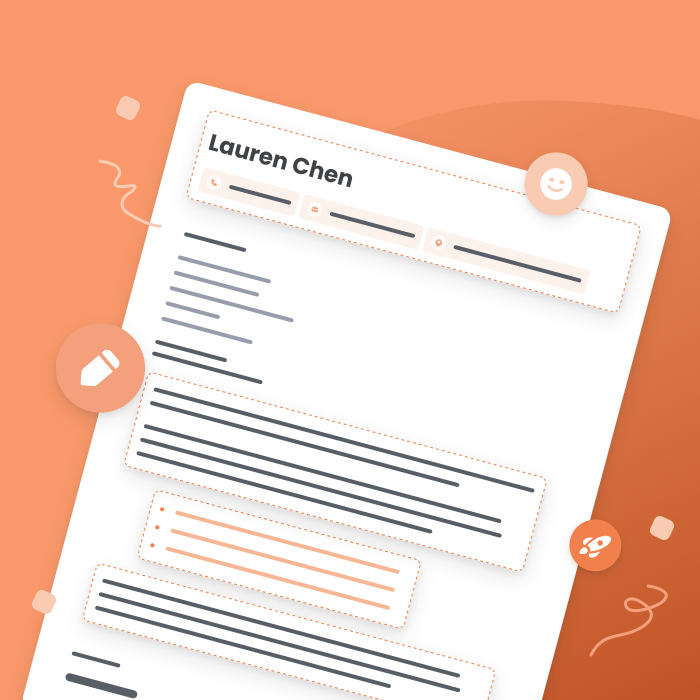
Dread writing cover letters? Read our guide to learn how to write a great cover letter that convinces hiring managers you’re the ideal person for the job.
Tailor your cover letter to an industry not a specific role
Even though you’re making a universal cover letter, it still needs to be specific enough that the information you include is relevant to a specific career.
Employers can easily see through a nonspecific, bland cover letter, and if you want to make a good impression with the hiring manager, you’ll need to do more than just swap out company names and positions.
To do this, tailor your cover letter not to the position, but to the industry. This is the best way to maximize your chances of success while minimizing the time spent on your application.
Hiring managers are on the lookout for information that demonstrates why you think you’re the best fit for their company, so scan the job listings of the roles you intend to apply for, look for common denominators, and target those in your generalized cover letter.
This way, employers will get the impression that you’ve written your cover letter with their company in mind.
Another great time-saving tool when you’re preparing applications is an AI cover letter generator. A cover letter generator can help you quickly adjust and tailor your cover letter to specific roles.
Click to rate this article
4.8 Average rating


